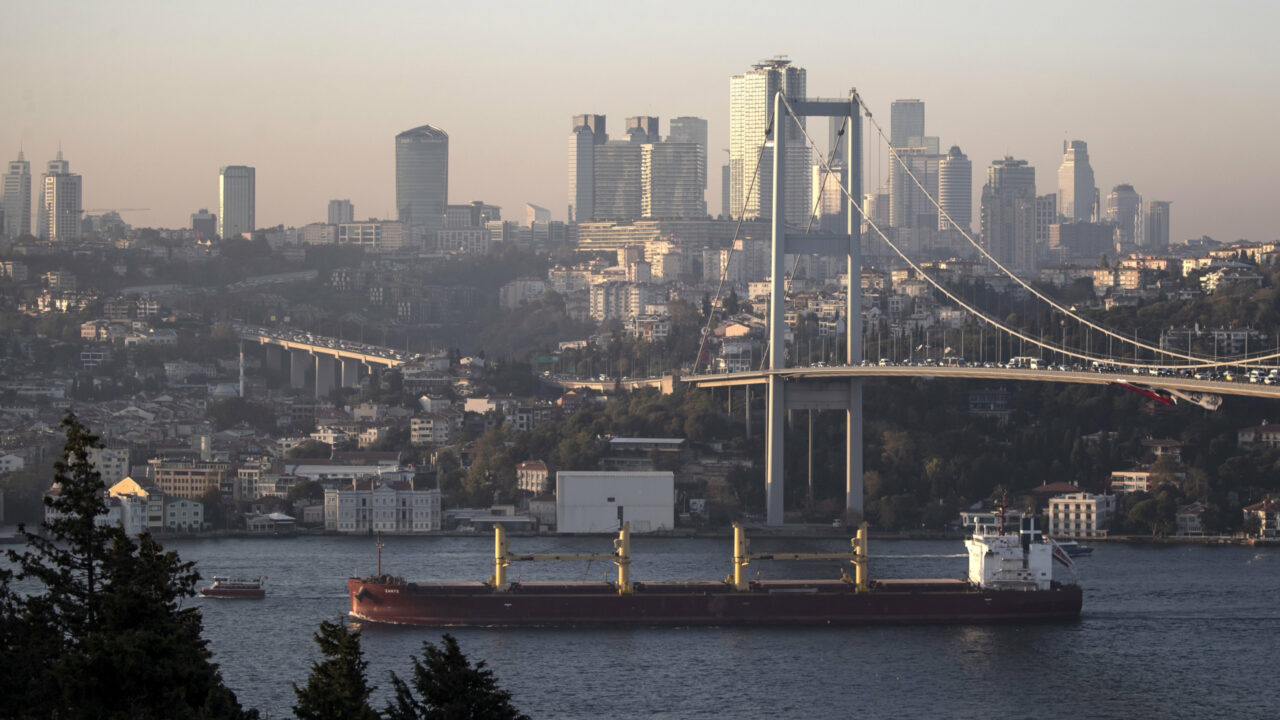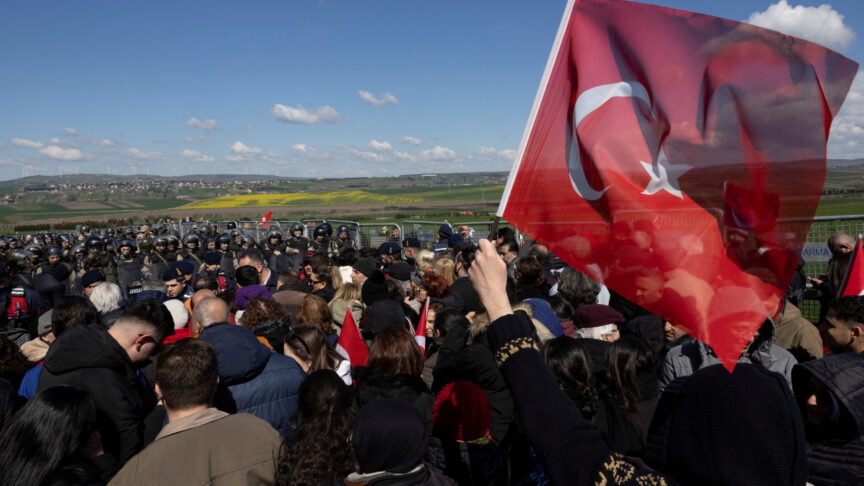Grain of truth: Why Russia rejoined the Ukraine food export deal
Turkey’s strength in the Black Sea may have persuaded Russia to return to the Ukraine grain export deal. But the agreement also lends another string to its bow
On 29 October, Russia announced it had quit the deal brokered by Turkey and the United Nations to allow Ukraine to export grain by sea. Moscow presented its move as a response to a Ukrainian drone attack on the Russian fleet around Sevastopol. But, despite this withdrawal, on 31 October, 12 Ukrainian and UN ships set sail for the deal’s safe corridor, which stretches across the heavily mined Black Sea, towards the Bosporus Strait, and into the Mediterranean Sea. Shortly afterwards, the Russian defence ministry said that it would return to the deal, citing “written guarantees” provided by Ukraine that this corridor would not be used to conduct military operations. Turkey played a key role in this, with Russian defence minister Sergei Shoigu speaking to his counterpart in Ankara in the run-up to Russia’s return – and Turkish president Recep Tayyip Erdogan making a point of announcing the news.
In the early months of Russia’s war against Ukraine, the Russian navy prevented traffic from going in and out of Ukrainian ports on the Black Sea. This caused a surge in global food prices, and posed a major threat to countries around the world already at risk of food insecurity. Before the war, Ukraine was one of the world’s major exporters of grain, with a 42 per cent global share of sunflower oil exports, 16 per cent of maize exports, and almost 10 per cent of global wheat exports. Some countries were heavily dependent on supplies from Ukraine, which also provided around 40 per cent of the World Food Programme’s wheat supplies.
To avert humanitarian catastrophe and protect trade routes in times of war, in July, Russia, Turkey, and Ukraine agreed to allow the export of grain and fertilisers from the three main Ukrainian ports that are still open: Odesa, Chornomorsk, and Yuzhny. The agreement provided for joint Russian-Turkish and Ukrainian inspections of the ships in Turkey and guarantees safe passage to and from the ports. Its initial period is due to run until 19 November 2022 and, following implementation, food prices have fallen – by 7.90 per cent since March 2022. Since the signing of the deal, around 9.5 million tonnes of grain products have left Ukrainian by sea.
The arrangement has had huge implications for Ukraine’s economy, especially in the country’s south-west. Since 24 February, six Ukrainian ports on the Black Sea have been de facto blockaded, with some having sustained heavy shelling damage. The deal has enabled the partial resumption of activity at the port of Odesa, which in particular supports the wider regional economy and represents a lifeline for Ukraine’s agricultural sector. An additional three small ports on the Danube are continuing to work normally, and have increased their capacity to compensate for the loss of other export routes.
Russia has consistently criticised the deal ever since it was signed, alleging that the grain is not reaching countries that need it most, and repeatedly accusing Ukraine of using the agreement for military purposes (first after the explosion that targeted the Kerch bridge and then after the drone operation around Sevastopol). So why would Russia return to the deal only four days after quitting it? The easy answer is that Russia recognised its own weak position, including its inability to stop the agreement’s implementation so long as Turkey continued to stick to it. Turkey’s role in both enabling the continuation of the deal – with or without Russia – and convincing Russia to rejoin together illustrate the significant influence it wields in the Black Sea, where it increasingly acts as a counteracting power to Russia. After all, the entire southern shore of the Black Sea belongs to Turkey and the country has a powerful navy. Russia may have feared a further weakening of its position in the sea. By calling Moscow’s bluff and continuing to implement the deal over those four days, Kyiv and Ankara effectively exposed its weakness for the world to see.
Even the grain deal’s short suspension may have given Russia exactly what it wanted.
But there could be more to the situation than meets the eye. Even the short suspension may have given Russia exactly what it wanted. When it signed the grain deal, Moscow’s intention was not to mitigate the consequences of the war for global food security; it was to give it additional leverage by providing an instrument for raising the stakes with minimal effort. Declaring that it had suspended participation in the deal was enough to cause wheat prices to jump by more than 5 per cent and provoke renewed anxiety in Ukraine and beyond. Russia will surely use this leverage at the G20 summit next week, which takes place just a few days before the deal expires, to maximise the benefits it can extract from the deal’s renewal process.
Until a credible alternative way of exporting Ukrainian grain emerges, Russia will remain in a position to use this deal as leverage. It is therefore important that the European Union explore alternative solutions to enable grain exports. This will principally mean investing in land transport infrastructure. Since the start of the war, the transport of cargo to and from Ukraine by road has drastically increased as a direct result of the sea blockade. Ukrainian sources have suggested to these authors that one cargo ship has the capacity to transport the equivalent of 3,000 trucks’ worth of goods. In reflection of this, hundreds of trucks are already transiting each day through Moldova to and from southern Ukraine. But road transport alone cannot be the only alternative and is not a sustainable solution given the quality of infrastructure in both Ukraine and Moldova. The EU should therefore also work to rapidly enhance rail infrastructure and adapt it to provide additional safe and sustainable land transport for Ukrainian food exports.
The current crisis is a reminder that, regardless of the continuation of the grain deal, alternative and longer-term solutions are needed to minimise the disturbance of grain exports from Ukraine – and to build stronger resilience against Russia’s use of this issue as leverage in the war.
The European Council on Foreign Relations does not take collective positions. ECFR publications only represent the views of their individual authors.



